Oktoberfest, the world’s most iconic beer festival, is a beloved Bavarian tradition that draws millions of celebrants each year. Held annually in Munich, Germany, this vibrant event dates back to 1810, when it began as a royal wedding celebration. Despite its name, Oktoberfest kicks off in mid-September and spans 16 to 18 days, wrapping up on the first Sunday in October or German Unity Day, if it happens to align. Today, Oktoberfest is a global sensation, enticing visitors from all corners of the world to enjoy exceptional German beers, savor traditional Bavarian dishes, and revel in a lively mix of music, dance, and cultural festivities.
Oktoberfest: Know before you go



Approximately 7.5 million liters of beer is consumed at the festival each year. One-liter mugs known as "Mass" are the standard serve. Only beers brewed within Munich's city limits make the cut, with six official breweries: Hofbräu, Augustiner, Hacker-Pschorr, Löwenbräu, Paulaner, and Spaten. Oktoberfest isn't just a beer-lover's paradise; it offers a variety of attractions such as traditional Bavarian music, dancing, amusement rides, food stalls, and parades. With over 80 carnival rides and a host of food options like roasted chicken and pork knuckles, there's something for everyone. The festivities kick off with a special ceremony where the Mayor of Munich taps the first keg at noon, exclaiming "O’zapft is!" (It is tapped), held at the Schottenhamel tent. You might hear locals referring to the festival as "Wiesn," a nod to the Theresienwiese field where it all takes place. Cheers to an unforgettable experience!
When is Oktoberfest in 2024?
This year the Oktoberfest is set to be celebrated from September 21, 2024 to October 6, 2024.
Oktoberfest Timings
On the first Saturday of the Oktoberfest, the tents open at 9am and Non-alcoholic beverages will be available from 10am. 12 noon is when the tapping takes place!
- Monday to Friday: 10am to 11.30pm
- Saturdays, Sundays and public holidays: Beer is served at 9am, and the last beer tapping is at 11.30pm
- Big Tents: Last beer at 10.30pm
- Small Tents: Last beer at 11pm
Oktoberfest Beer Tents
There are 17 large and 21 small tents to choose from at Oktoberfest and the Oide Wiesn. The beer tents remain open as long as there is beer! Make sure to book your tent on Oktoberfest Official Website in advance.
Where does Oktoberfest take place?
Oktoberfest takes place on the historic grounds where it began, the "Theresienwiese”. Through the year, the grounds are a public park, until June when the grounds start preparation for the Oktoberfest!
History of Oktoberfest
Oktoberfest traces its roots back to October 12, 1810, when Bavarian Crown Prince Ludwig, later King Ludwig I, married Princess Therese of Saxony-Hildburghausen. To celebrate the royal union, a grand public festival was held on the fields near Munich's city gates, which eventually became known as Theresienwiese or "Theresa's Meadow." The event included horse races, feasting, and beer, provided by local brewers. The festivities were so well-received that it was decided to make the celebration an annual tradition. Over the years, Oktoberfest evolved, introducing beer tents and halls, amusement rides, and an array of traditional foods and cultural attractions. It has since grown into an internationally renowned celebration of Bavarian culture!
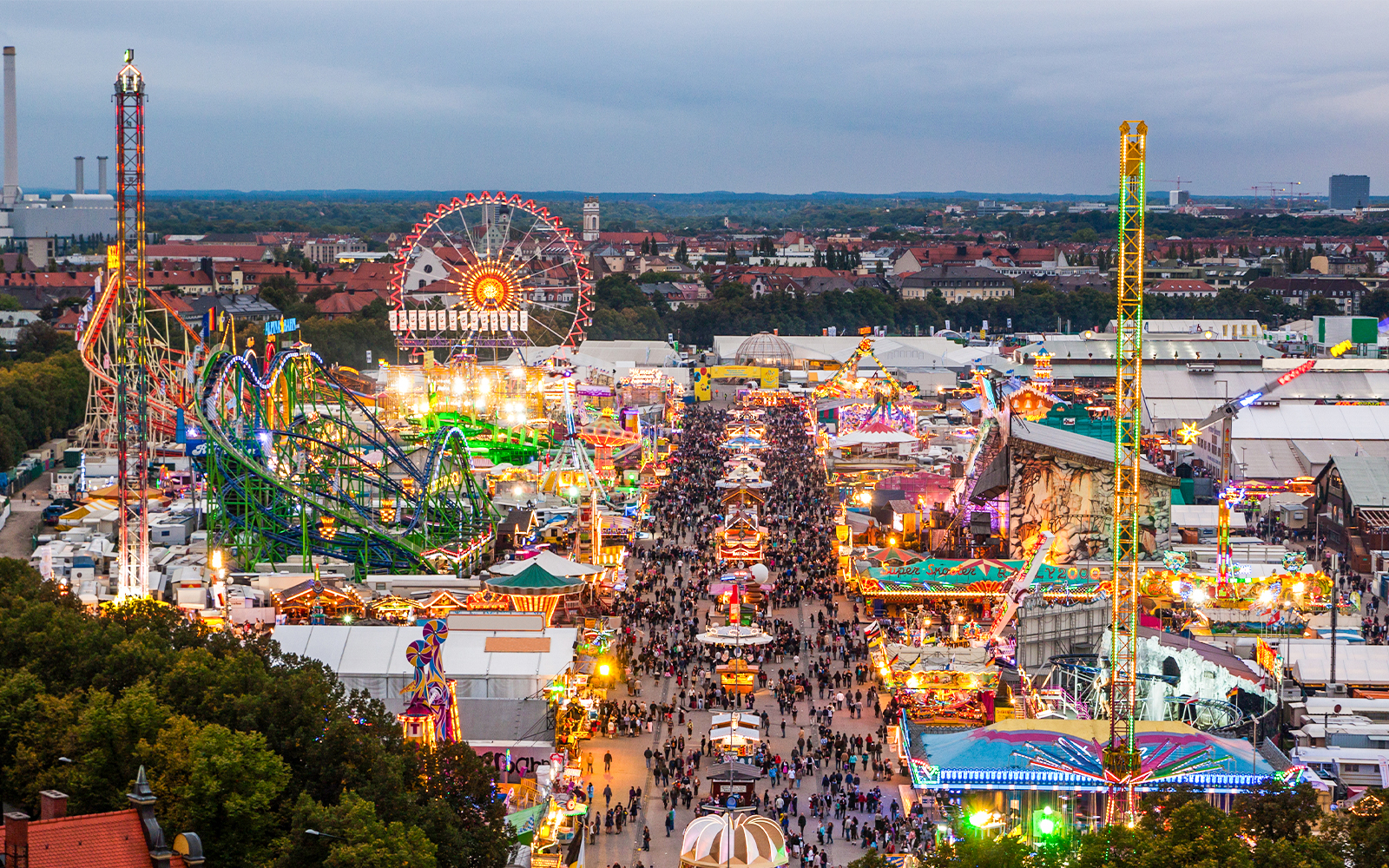
What can you do at Oktoberfest?
Drink beer. Lots of it! But of course, there are plenty of other things you can do here. The beer just happens to be the main attraction, but more on that later!
#1 Attend the Oktoberfest prelude: Entry of Oktoberfest landlords and breweries
The Grand Entry of the Oktoberfest Landlords and Breweries is the festive and ceremonial event that marks the official opening of the Oktoberfest. Families of the tent landlords', horse-drawn drays of the Munich breweries, waitresses on decorated floats and all the beer tent bands, are among the participants!
- When: 16th September 2023, for 45 minutes
- Route: Sonnenstraße-Schwanthalerstraße to the Oktoberfest grounds
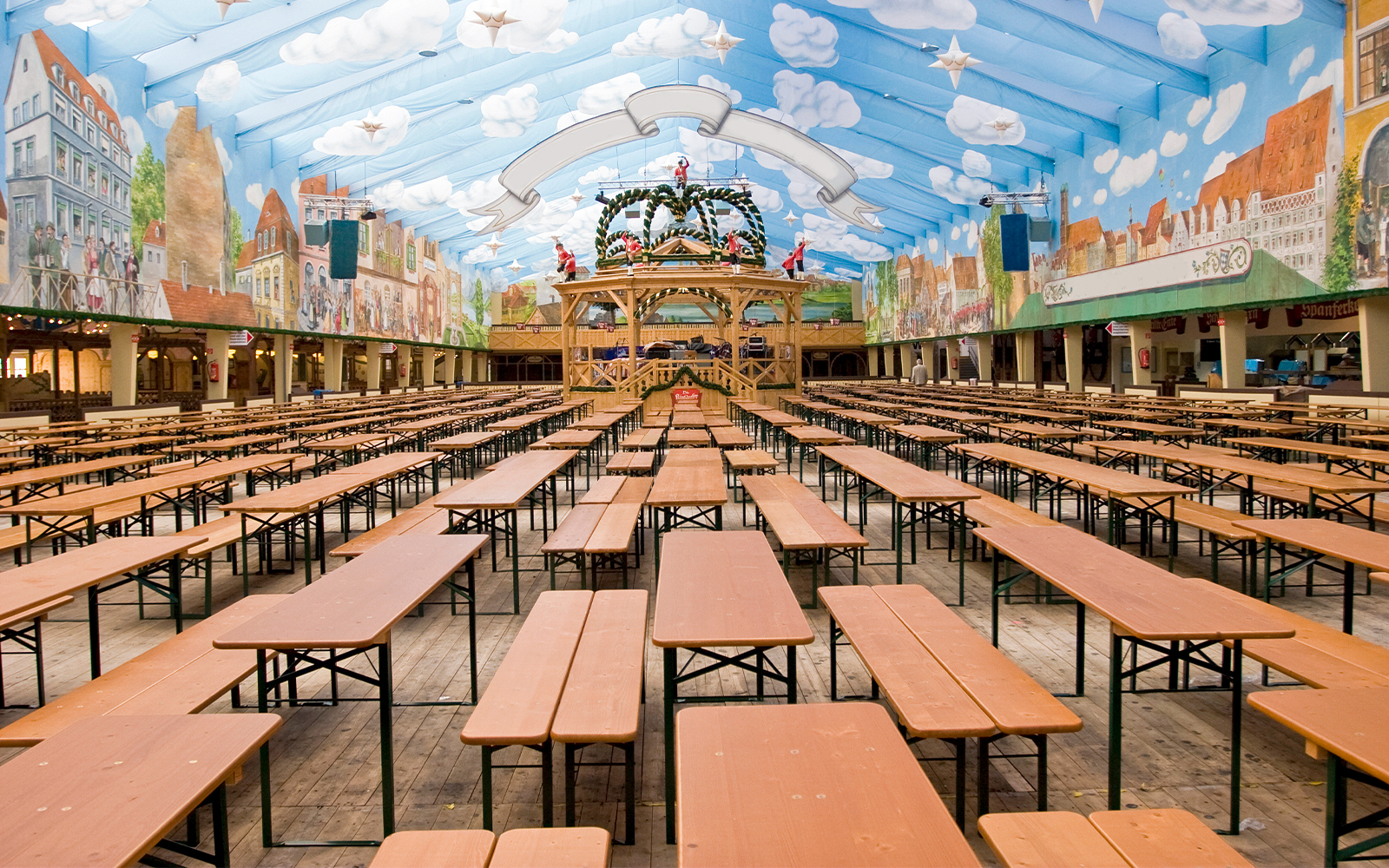
#2 Be there for the Ceremonial Tapping
"Tapping" at Oktoberfest refers to the ceremonial act of tapping the first keg of beer to officially mark the opening of the festival. Typically, the tapping of the first keg is performed by a notable dignitary, such as the mayor of Munich or a high-ranking official. Once the keg is successfully tapped, the beer flows freely, and the crowd erupts in cheers and applause!
When: September 21, 2024
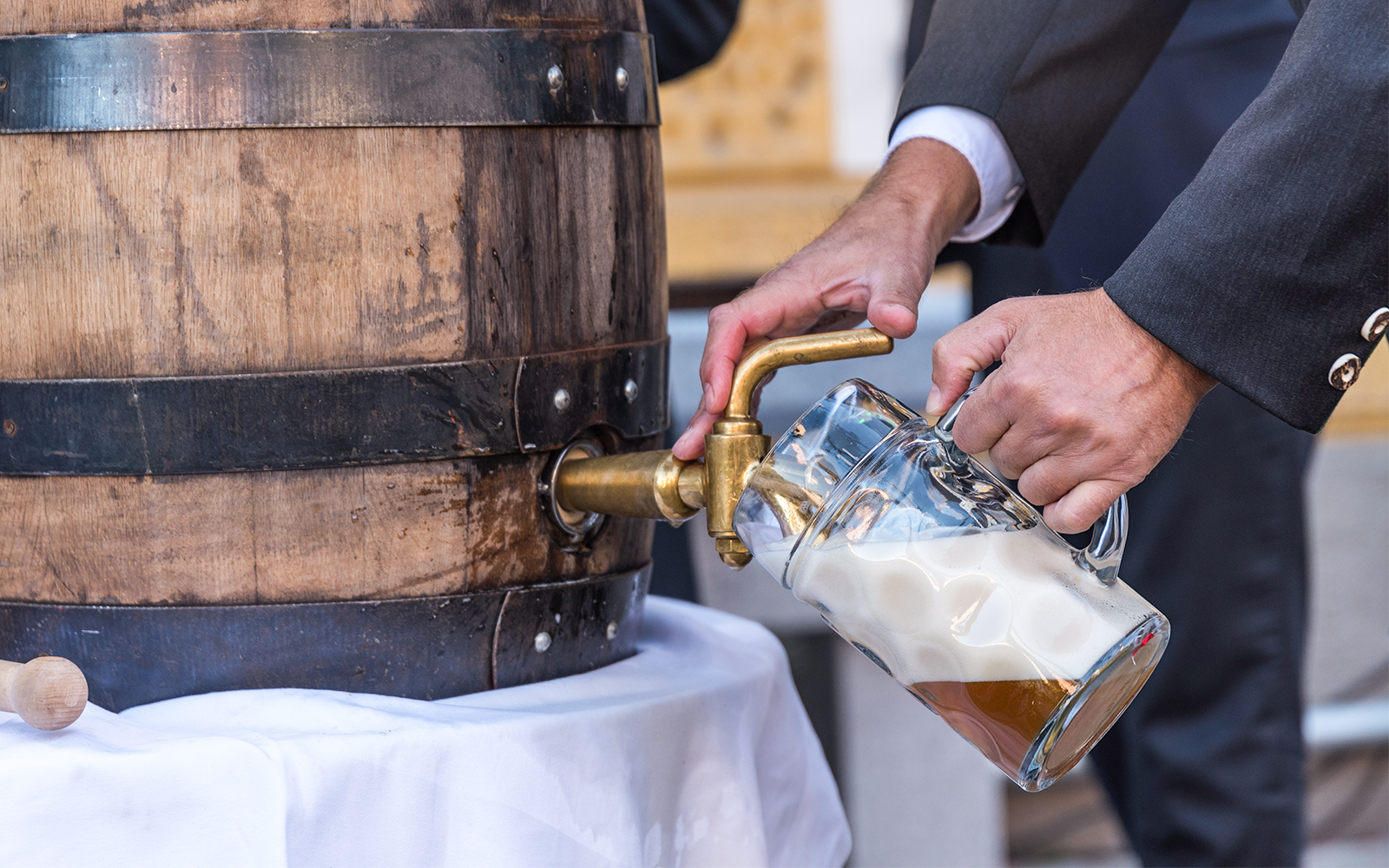
#3 Witness the Oktoberfest Costume and Riflemen's Parade
The Oktoberfest Costume and Riflemen's Parade, also known as the "Trachten- und Schützenumzug" in German, is a parade that takes place during the Oktoberfest festival in Munich. This parade focuses specifically on traditional Bavarian costumes and marksmen's groups.
- When: September 22, 2024 for 2-2.5 hours
- Route: Max II. Memorial to the Oktoberfest grounds (7 KM)
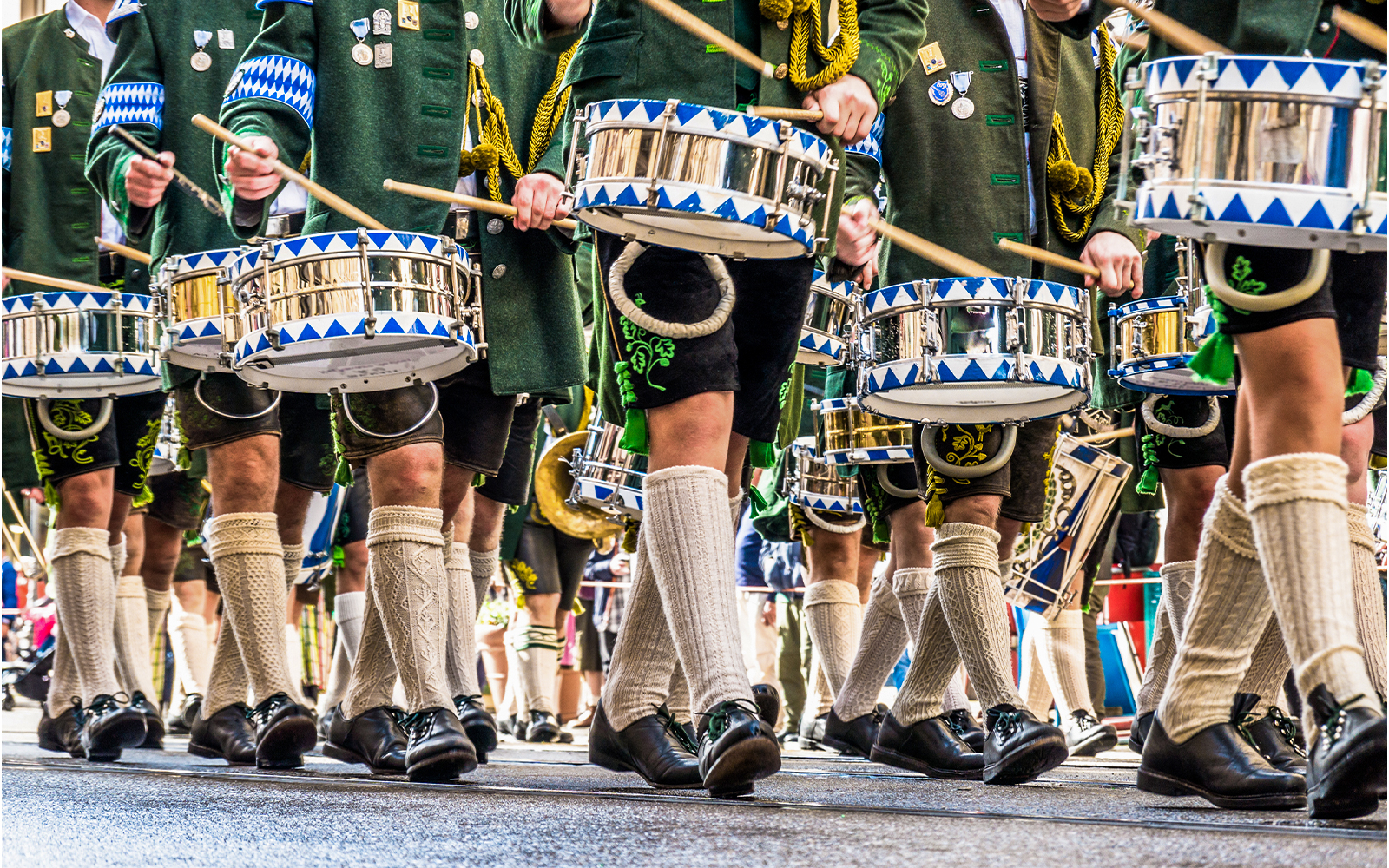
#4 Savor Bavarian Cuisine!
Indulge in delicious Bavarian cuisine, including pretzels, sausages, sauerkraut, schnitzel, roast chicken, and other hearty dishes. Be sure to try the local specialties.
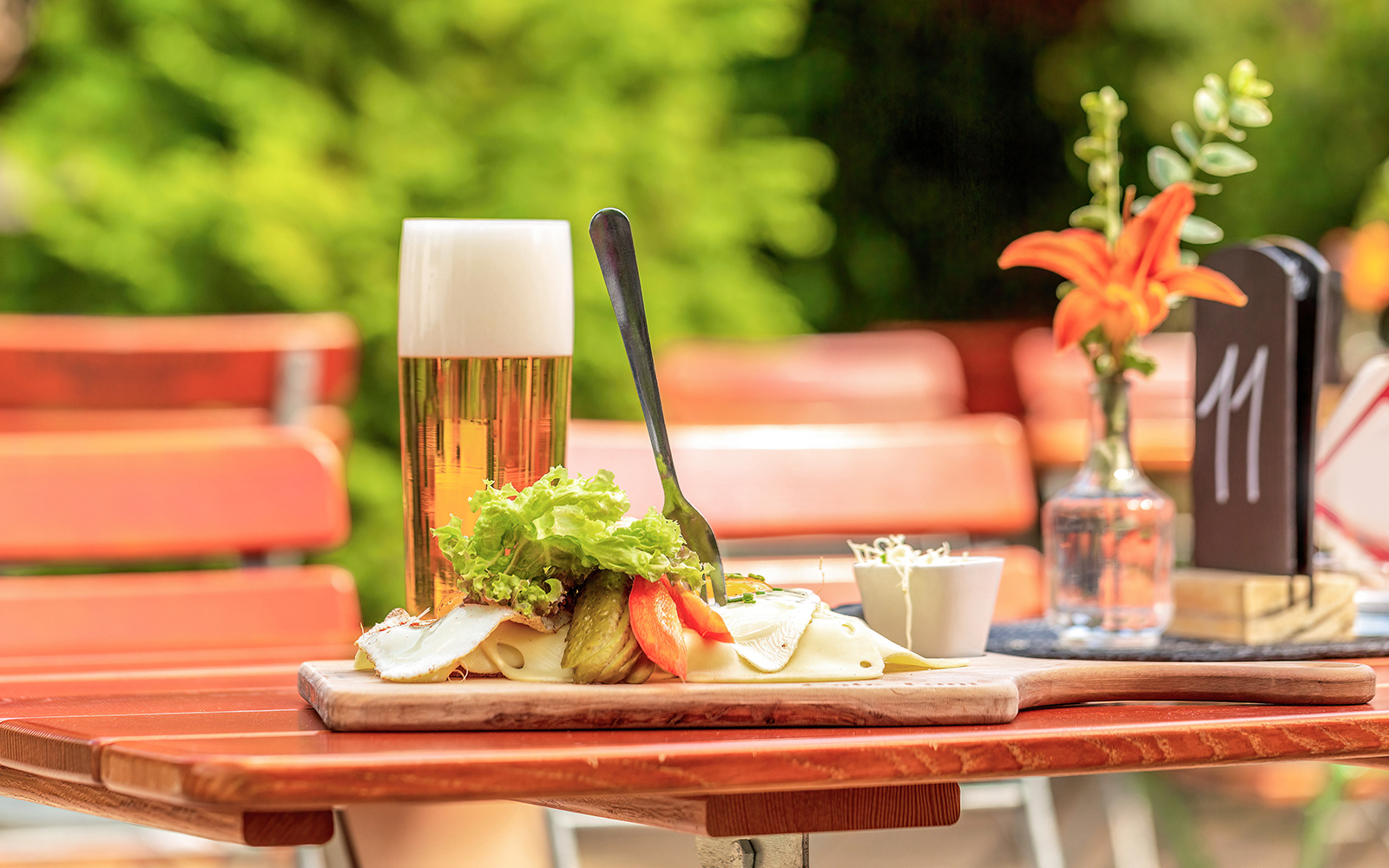
Best German Oktoberfest Beer
At Oktoberfest, beer lovers are spoiled with some of the finest German lagers, primarily Märzen and Festbier. Märzen is a dark, malt-forward brew crafted in the spring and stored long enough to enhance its rich flavor for the fall festival. While Festbier is a golden, hoppier lager known for its distinct, crisp taste. While tastes may vary, certain beers are widely adored. Here are four standout options to elevate your Oktoberfest experience.
Augustiner Oktoberfestbier
This Märzen-style delight from Munich's beloved Augustiner brewery offers a rich, malty flavor with a smooth finish and an ABV around 6.3%. Brewed specifically for Oktoberfest, Augustiner beer embodies Munich culture, served often from wooden barrels in traditional beer gardens. Their commitment to community shines as profits support charitable causes through the Edith Haberland Wagner Foundation.
Ayinger Oktoberfest Märzen
Nestled just outside Munich in Aying, Ayinger Privatbrauerei remains a hallmark of quality since its founding in 1878. This Märzen boasts a deep caramel flavor with malt-forward undertones, and has won accolades both locally and internationally—an exemplary representation of Bavarian brewing traditions.
Staghorn Oktoberfest
Using a blend of rich malts, Staghorn delivers a toasty, caramel-hinted Märzen with a smooth finish—a tribute to fall and Oktoberfest. New Glarus Brewery's dedication to local ingredients and time-honored methods ensures each sip reflects quality and tradition, making it a festive favorite.
Hofbräu Oktoberfestbier
One of Munich's six esteemed breweries, Hofbräu München, offers the classic Oktoberfestbier, a Märzen with a harmonious malt richness and slightly sweet finish around 6.3% ABV. Their other brews, like the refreshing Hofbräu Original Helles lager and the malty Hofbräu Dunkel with notes of caramel and roasted nuts, also celebrate their storied brewing lineage since 1589.
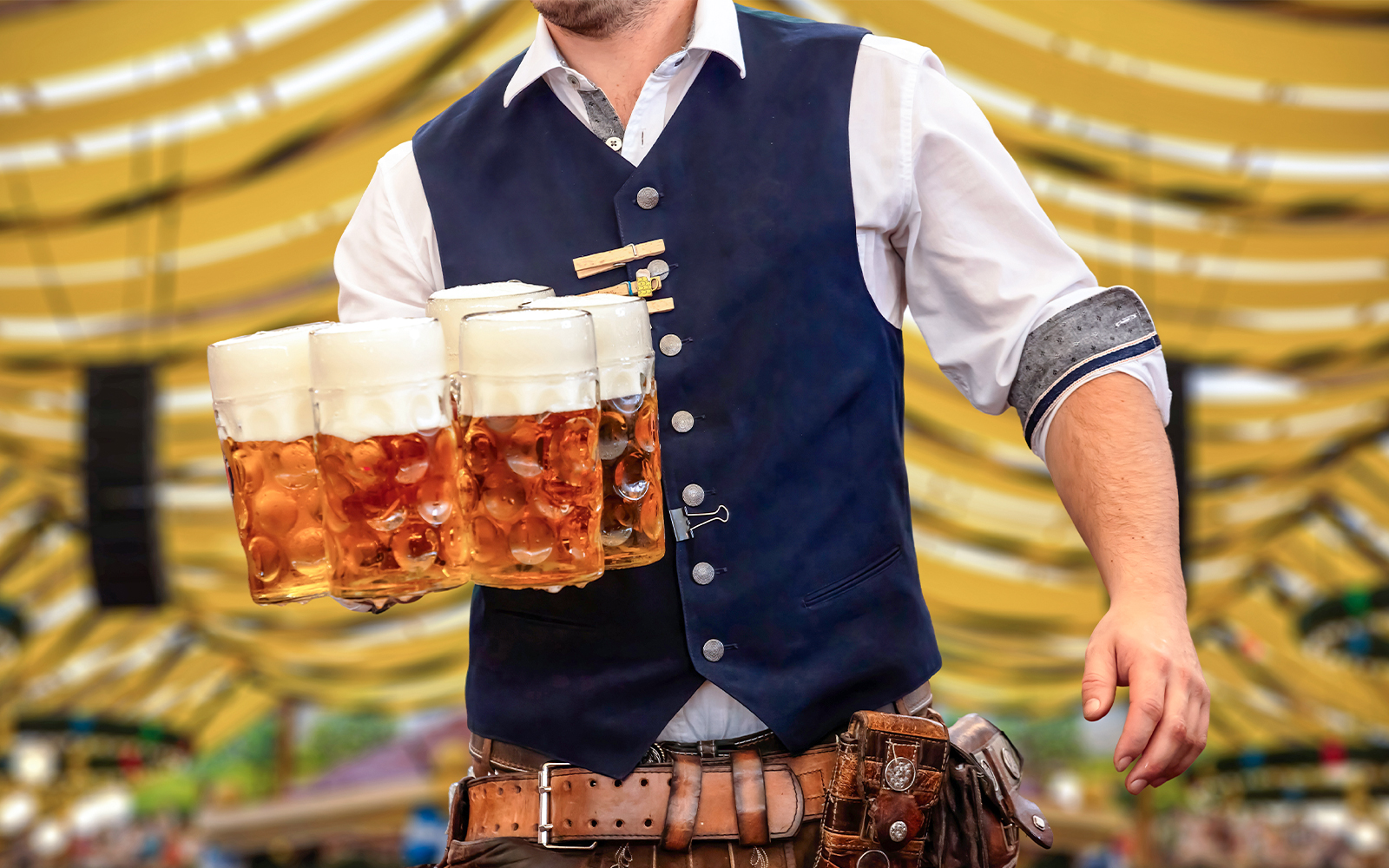
Oktoberfest Tips
- Many vendors and food stalls may not accept credit cards, so have cash on hand for purchases.
- Don't carry glass bottles. They are typically not allowed at the festival for safety reasons. Oktoberfest beer is served in durable one-liter glass mugs.
- Large bags are generally not allowed into the beer tents for security and space reasons.
- It's customary to tip the waitstaff in the beer tents, so be sure to leave a gratuity for their service.
- To up the fun factor, dress in traditional Bavarian clothes!
FAQs
Nope! While it'll be fun to dress up in Bavarian clothes, you won't get any odd looks if you don't. Dress comfortably!
Oktoberfest is generally open to all ages. However, some beer tents may have age restrictions and are off-limits to minors after a certain hour in the evening. Be sure to check the specific rules of the tent you plan to visit.
No, outside food and drinks are typically not allowed in the beer tents. Oktoberfest is a place to enjoy traditional Bavarian food and beer provided by the festival vendors.
There is no general entrance fee to Oktoberfest itself. You only pay for what you consume, such as food and beverages. However, some attractions and rides within the fairgrounds may have their own fees.
While some larger tents and vendors may accept credit cards, it's advisable to carry cash with you as many smaller stalls and services may be cash-only.

